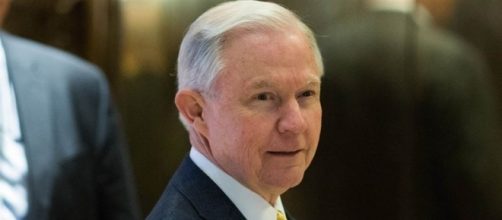Sen. Jeff Sessions, nominated by US President-elect Donald Trump, to be Secretary of Justice, is determined to play a counterweight role in the future US government, and say "no" to the New York millionaire if Trump does "exceed " his power. Sessions also said he would abide by the Supreme Court's decision that in 2015 allowed gay marriage across the United States and pledged to protect gay, lesbian, and transgender rights. The senator also said that he would respect the laws of the country as it relates to abortion and other issues.
Sessions on protecting women & LGBTQ: “I am not sure women or people with different sexual orientations face that kind of discrimination.”
— Senate Judiciary Dem (@JudiciaryDems) 10 de janeiro de 2017
The statements were made at the first of his Senate Justice Committee hearings to assess his appointment as Secretary of Justice for the future US government.
He is a Senator for the state of Alabama (and has been for 20 years), and known for his tough positions on immigration. Sessions defended the independence of the US Department of Justice, and considers that anyone who holds that position must be "committed to following the law" and be faithful To the country's constitution.
In his statement, Sessions labeled as "false" some of the charges against him, such as that he persecuted African-American civil rights advocates and supported the Ku Klux Klan during his tenure as Southern District Attorney (1981-1993). "I abhor the Ku Klux Klan, what it represents and its ideology of hatred," Sessions said, not mentioning the constant disruption of the demonstrators.
The senator focused his speech on the "dangerous trend" of rising crime that the US has been living in in recent years. To highlight the increase in crime in the US, Sessions cited the latest FBI statistics, which show an increase in all types of crime by 4 percent between 2014 and 2015, a period in which murders grew by 11 percent, the largest increase since 1971.
If confirmed as a Secretary of Justice, Sessions has committed to prosecute those who "repeatedly violate" US borders, pursue gun crimes, and create alliances with local police departments to end gangs and cartels.
Protests
The nomination of Sessions generated a great malaise among organizations like the Union for Civil Liberties in America (ACLU), which consider him racist, and criticized the positions he defended on immigration.
When Sessions entered the room, two men stood in their seats in the audience and showed a hat that mimicked the costumes worn by the members of the Ku Klux Klan. They ironically thanked the senator for being the representative of the group in the new government.
The Democrats vowed to question Sessions over statements that had already prevented him from being a judge in an Alabama court in 1986, when he had been appointed by then-President Ronald Reagan.
Hillary
Session pledged during the Senate hearing not to personally investigate the Democratic presidential candidate defeated by Trump, Hillary Clinton, for the scandal involving the use of a private e-mail server when she was Secretary of State (2009-2013) or controversial donations to the Clinton Foundation.
"This country does not punish its political enemies. This country makes sure no one is above the law," said the senator. "We should not allow a political dispute to turn into a legal dispute." He explained that he would bar "any question" that implied anything negative about Hillary, because an investigation against her could "put her objectivity at risk," because of the comments he made against her during the election campaign.
During the election bout, Trump promised that he would have his Secretary of Justice designate a special prosecutor to investigate Hillary, accused by the tycoon of compromising the country's security by way of her e-mail scandal.

